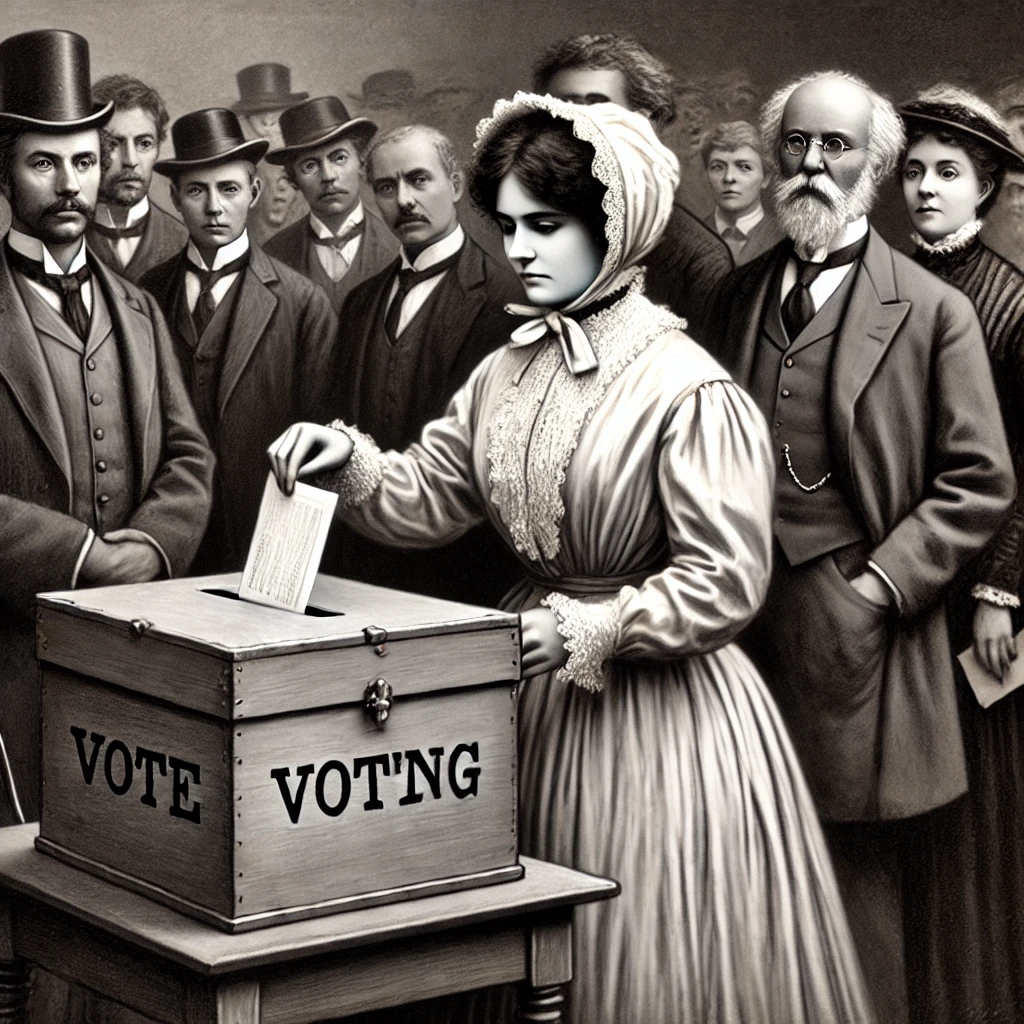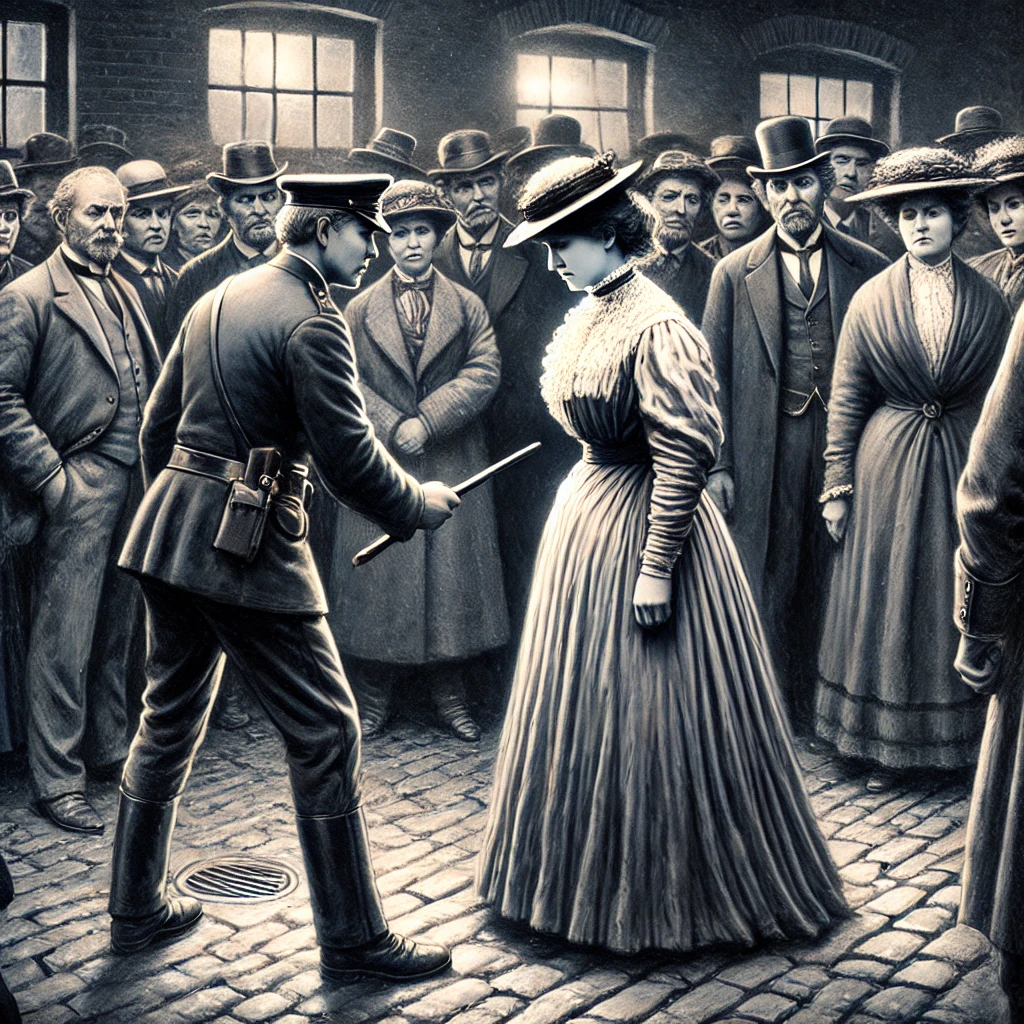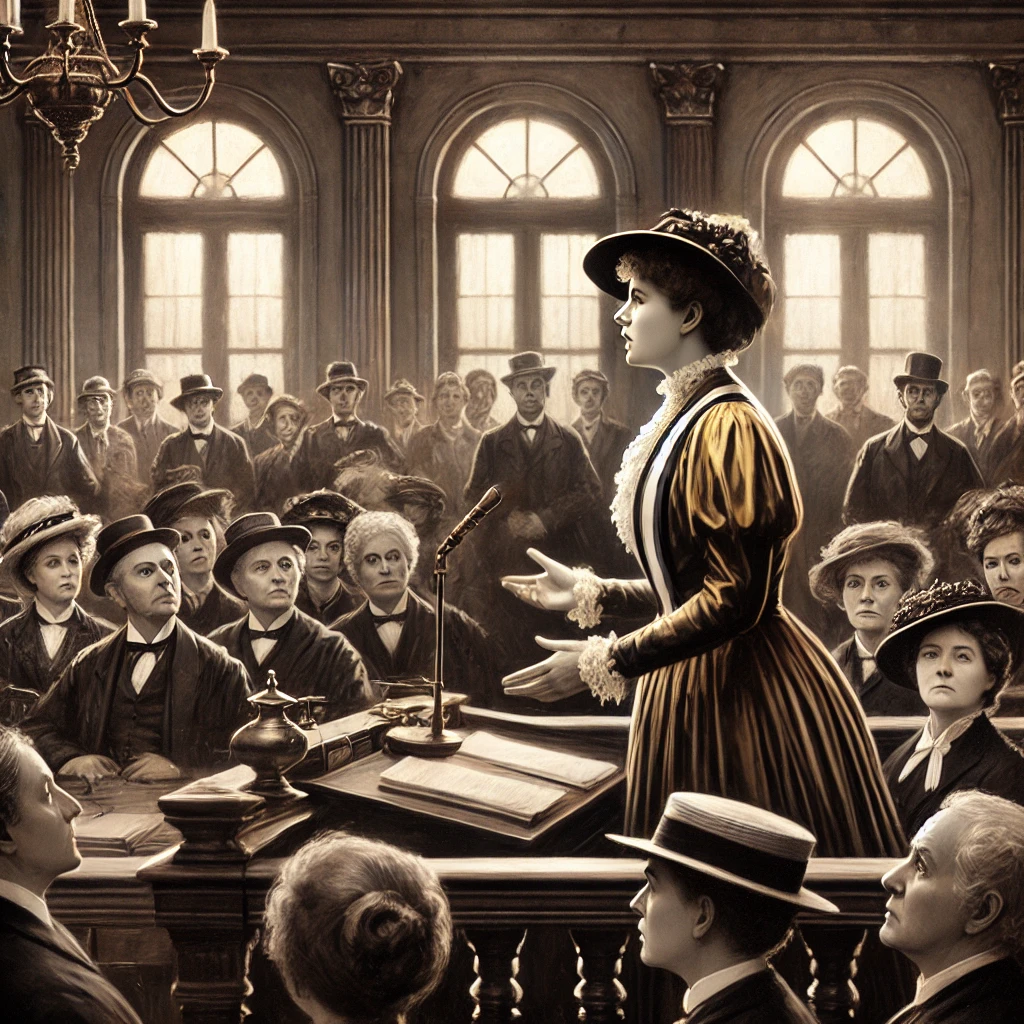On November 5, 1872, Susan B. Anthony, a prominent advocate for women’s rights and suffrage, cast a vote in the presidential election, an act that would lead to her arrest and become a pivotal moment in the fight for women’s suffrage in the United States. This bold action was a significant step in challenging the legal and societal norms that barred women from participating in the electoral process. Anthony’s determination and activism would inspire future generations of women to fight for their rights.

The Context of the Suffrage Movement
By the early 1870s, the women’s suffrage movement was gaining momentum in the United States, with leaders like Susan B. Anthony and Elizabeth Cady Stanton advocating for women’s right to vote. Despite the growing support for suffrage, women remained largely disenfranchised, facing legal and societal barriers. Anthony believed that the only way to bring about change was to assert women’s rights through direct action, leading her to take the momentous step of casting her vote in the 1872 election.
On that historic day, Anthony and several other women, including Elizabeth Cady Stanton, registered to vote in Rochester, New York. Their actions were both a symbolic gesture and a direct challenge to the laws that prohibited women from voting. Anthony’s vote was a statement of equality and a demand for justice, representing the growing frustration among women who were tired of being excluded from the political process.

The Arrest and Its Aftermath
Following her vote, Susan B. Anthony was arrested for voting illegally. The trial that followed garnered significant attention, highlighting the inequalities faced by women in the legal and political systems. During her trial, Anthony famously argued that the Constitution granted her the right to vote, stating, “I declare to you that what I did was right and I shall not be turned back.” Despite her compelling arguments, Anthony was found guilty and fined $100, a penalty she famously refused to pay.
The publicity surrounding Anthony’s arrest and trial further galvanized the women’s suffrage movement. It sparked nationwide discussions about women’s rights and the broader implications of disenfranchisement. Anthony’s courageous actions and steadfast commitment to the cause motivated many other women to join the fight for suffrage, leading to the formation of organizations dedicated to securing voting rights for women.
A Lasting Legacy
Susan B. Anthony’s vote in 1872 and her subsequent arrest marked a crucial turning point in the women’s suffrage movement. Her unwavering determination and willingness to challenge the status quo laid the groundwork for future activism and advocacy for women’s rights. The event is often viewed as a catalyst that contributed to the eventual passage of the Nineteenth Amendment in 1920, which granted women the right to vote.

Today, Anthony is celebrated as a pioneer of the women’s rights movement, and her legacy continues to inspire advocates for gender equality and social justice. The anniversary of her vote serves as a reminder of the struggles faced by women in the pursuit of equal rights and the importance of civic engagement. As we reflect on this historic event, we honor Susan B. Anthony’s courage and the impact of her actions on the ongoing fight for equality.
The act of voting on November 5, 1872, by Susan B. Anthony not only led to her arrest but also ignited a powerful movement for women’s suffrage in the United States. Her bold stand against injustice highlighted the need for societal change and the recognition of women’s rights. As we commemorate this significant moment in history, we recognize the lasting impact of Anthony’s courage and the importance of continuing the work toward equality and justice for all. Her legacy serves as an enduring inspiration for those who advocate for the rights of marginalized communities, reminding us that change often begins with a single act of defiance.
